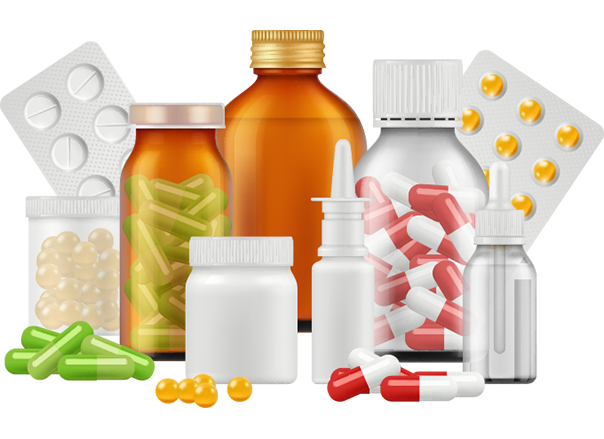In the ever-evolving field of life sciences, wholesale distributors play a critical role in ensuring that essential products, tools, and technologies are readily available for research, development, and clinical applications. From laboratory equipment to reagents and medical devices, these distributors bridge the gap between manufacturers and end-users such as research institutions, hospitals, and pharmaceutical companies. This article dives deep into the world of Lifesciences wholesale distributors, highlighting their significance, key offerings, market trends, and factors to consider when choosing the right partner.
What Are Life Science Wholesale Distributors?
Life science wholesale distributors act as intermediaries between manufacturers and consumers in the life sciences industry. They procure products in bulk from manufacturers and supply them to labs, healthcare providers, and other end-users at competitive prices. Their core value lies in offering a wide range of products, streamlined logistics, and customer support, which simplifies the procurement process for organizations involved in scientific research and healthcare.
Key Offerings of Life Science Wholesale Distributors
1. Laboratory Equipment
Distributors supply state-of-the-art equipment essential for research, diagnostics, and testing, including:
- Microscopes
- Centrifuges
- PCR machines
- Incubators
- Spectrophotometers
2. Reagents and Chemicals
High-quality reagents and chemicals are the backbone of life science research. Wholesale distributors ensure availability of:
- Buffers and solutions
- Enzymes and antibodies
- Cell culture media
- Analytical-grade solvents
3. Medical Devices
Distributors provide a variety of medical devices to support clinical practices, such as:
- Diagnostic kits
- Monitoring devices
- Surgical tools
4. Biotech and Pharmaceutical Supplies
Biotech firms and pharmaceutical companies often source raw materials and specialty products like:
- Active pharmaceutical ingredients (APIs)
- Biological samples
- Bioreactors
5. Consumables
Labs and healthcare facilities require a steady supply of consumables, including:
- Pipettes and tips
- Gloves, masks, and PPE
- Petri dishes and culture plates
- Laboratory glassware
The Role of Life Science Wholesale Distributors in the Supply Chain
1. Streamlining Procurement
By offering a one-stop solution for various products, distributors save time and effort for research and healthcare institutions.
2. Ensuring Quality Compliance
Reputable distributors adhere to stringent quality control measures, ensuring that the products they supply meet regulatory standards.
3. Facilitating Innovation
Many distributors partner with manufacturers to introduce the latest technologies and innovations to their clients.
4. Reducing Costs
Bulk purchasing allows distributors to negotiate better rates with manufacturers, passing on the cost benefits to their customers.
Challenges Faced by Life Science Wholesale Distributors
Despite their pivotal role, Lifesciences Wholesale Distributors in the life sciences sector face several challenges:
- Regulatory Compliance The life sciences industry is heavily regulated, requiring distributors to stay updated on changes in laws and standards.
- Inventory Management Balancing inventory to meet demand without overstocking is crucial, especially for perishable items like reagents.
- Technological Integration The need for advanced systems to manage orders, track shipments, and monitor inventory has increased significantly.
- Global Supply Chain Disruptions Events like pandemics and geopolitical tensions can severely impact the supply chain, affecting product availability and delivery timelines.
Trends Shaping the Life Science Wholesale Distribution Market
1. Digital Transformation
The adoption of e-commerce platforms and automated inventory systems is revolutionizing the procurement process.
2. Sustainability Initiatives
Distributors are focusing on eco-friendly packaging and reducing their carbon footprint to align with global sustainability goals.
3. Personalized Services
Tailored solutions, including custom packaging and flexible shipping options, are becoming more common to meet specific customer needs.
4. Collaborative Partnerships
Collaborations between distributors, manufacturers, and end-users are fostering innovation and improving product accessibility.
Factors to Consider When Choosing a Life Science Wholesale Distributor
Selecting the right Corporate Counsel Edwards Lifesciences distributor is critical for ensuring smooth operations. Here are key factors to consider:
1. Product Range
Ensure the distributor offers a comprehensive catalog that meets your specific needs.
2. Quality Assurance
Verify that the distributor complies with industry regulations and standards, such as ISO certifications.
3. Pricing and Discounts
Compare pricing and inquire about bulk purchase discounts to optimize costs.
4. Customer Support
Reliable customer service is essential for resolving issues and answering queries promptly.
5. Delivery Network
Assess the distributor’s delivery capabilities, including speed, coverage, and tracking options.
6. Technological Capabilities
Look for distributors who leverage technology for seamless order management and inventory tracking.
Leading Life Science Wholesale Distributors
Some of the top global players in the life science wholesale distribution industry include:
1. Thermo Fisher Scientific
Known for its extensive product range and cutting-edge technologies, Thermo Fisher is a market leader.
2. VWR International
VWR specializes in supplying laboratory products and services worldwide.
3. Avantor
With a focus on innovation and quality, Avantor offers a broad spectrum of life science supplies.
4. Sigma-Aldrich (Merck)
A trusted name in reagents and chemicals, Sigma-Aldrich serves researchers and healthcare professionals globally.
Conclusion
Life science wholesale distributors are the backbone of the life sciences industry, providing essential tools and products that drive innovation and improve healthcare outcomes. As the industry continues to evolve, distributors must adapt to changing market dynamics, technological advancements, and sustainability goals. By partnering with a reputable Charlie Naylor Key Lifesciences distributor, organizations can ensure a steady supply of high-quality products, enabling them to focus on groundbreaking research and patient care.
When choosing a distributor, prioritize factors like product range, quality, customer support, and technological capabilities to find the best fit for your needs. With the right partner, navigating the complexities of the life sciences supply chain becomes a seamless experience.



